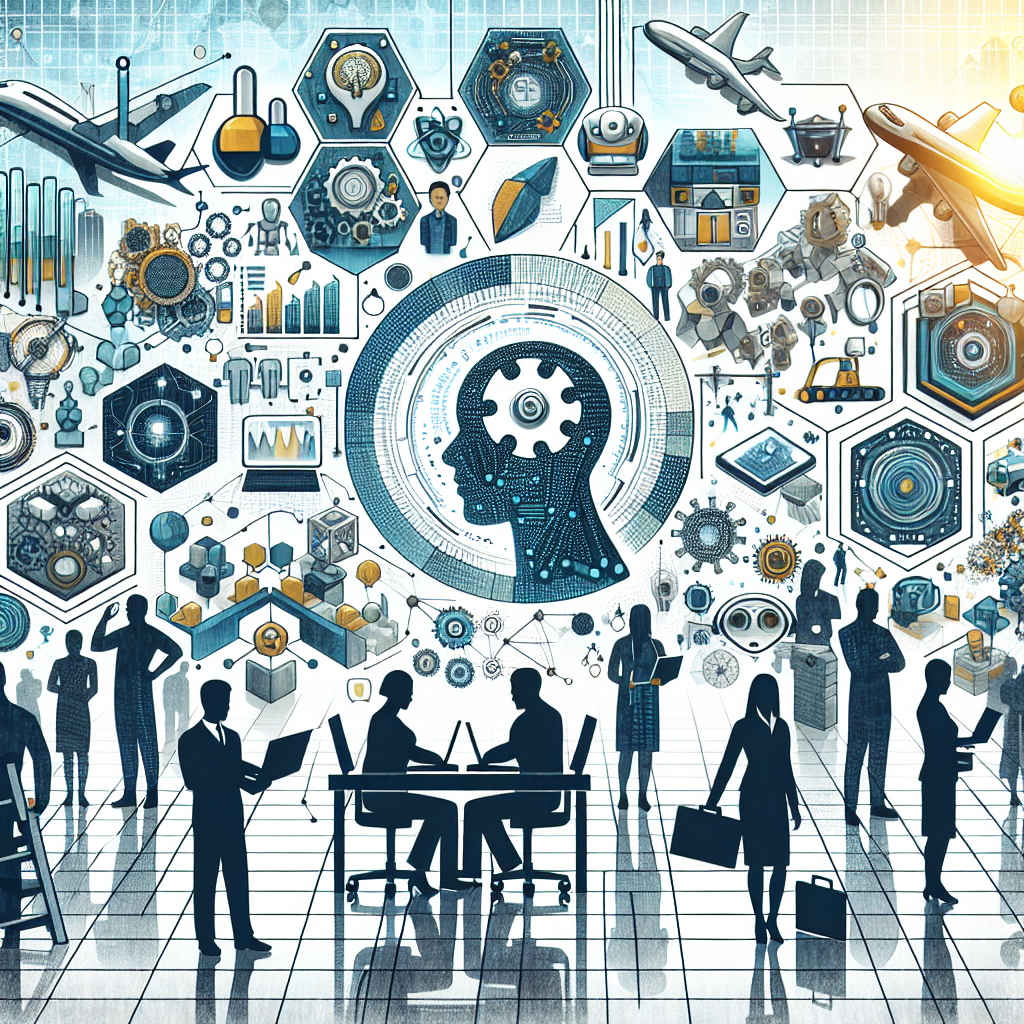Artificial General Intelligence (AGI), also known as strong AI or full AI, is a term used to describe a type of artificial intelligence that possesses the ability to understand, learn, and apply knowledge across a wide range of tasks and domains. Unlike narrow AI, which is designed for specific tasks or functions, AGI has the potential to think and reason like a human, leading to a paradigm shift in the way we interact with technology and the world around us.
AGI has the potential to revolutionize industries and reshape the workforce in ways that were previously unimaginable. From healthcare and finance to transportation and manufacturing, the impact of AGI is expected to be profound and far-reaching. In this article, we will explore the potential implications of AGI on various industries and how it will reshape the workforce of the future.
Revolutionizing Industries:
1. Healthcare: AGI has the potential to transform the healthcare industry by providing personalized treatment plans, diagnosing diseases at an early stage, and assisting in surgery procedures. With the ability to process vast amounts of medical data and identify patterns that human doctors may miss, AGI can significantly improve patient outcomes and reduce healthcare costs.
2. Finance: In the financial sector, AGI can revolutionize risk management, fraud detection, and investment strategies. By analyzing market trends and predicting future outcomes with a high degree of accuracy, AGI can help financial institutions make better-informed decisions and mitigate risks.
3. Transportation: The advent of AGI is expected to revolutionize the transportation industry by enabling autonomous vehicles to navigate complex environments and make split-second decisions in real-time. This technology has the potential to reduce traffic accidents, decrease congestion, and improve the overall efficiency of transportation networks.
4. Manufacturing: AGI can revolutionize the manufacturing industry by optimizing production processes, improving quality control, and increasing operational efficiency. By automating repetitive tasks and streamlining workflows, AGI can help manufacturers reduce costs and increase productivity.
Reshaping the Workforce:
While AGI has the potential to revolutionize industries and improve efficiency, it also raises concerns about the impact on the workforce. As machines become increasingly capable of performing tasks that were once exclusive to humans, there is a growing fear that automation will lead to widespread job displacement and economic instability.
However, the advent of AGI also presents new opportunities for workers to upskill and reskill in order to adapt to the changing labor market. By leveraging AGI to augment their skills and capabilities, workers can enhance their productivity, creativity, and problem-solving abilities, making them more competitive in the workforce of the future.
Additionally, AGI can create new job opportunities in emerging fields such as AI ethics, data science, and human-machine collaboration. As the demand for AI experts and specialists continues to grow, individuals with the right skills and knowledge will be well-positioned to thrive in the new economy.
FAQs:
Q: What is the difference between AGI and narrow AI?
A: AGI is a type of artificial intelligence that possesses the ability to understand, learn, and apply knowledge across a wide range of tasks and domains. In contrast, narrow AI is designed for specific tasks or functions and lacks the ability to generalize beyond its designated scope.
Q: Will AGI replace human workers?
A: While AGI has the potential to automate certain tasks and functions, it is unlikely to completely replace human workers. Instead, AGI is expected to augment human capabilities and enable workers to focus on higher-level tasks that require creativity, critical thinking, and emotional intelligence.
Q: What are the ethical implications of AGI?
A: The development and deployment of AGI raise important ethical considerations, including issues related to privacy, security, bias, and accountability. It is crucial for policymakers, researchers, and industry stakeholders to address these concerns and ensure that AGI is developed and used responsibly.
In conclusion, AGI has the potential to revolutionize industries and reshape the workforce in ways that will have a lasting impact on society. By embracing the opportunities presented by AGI and addressing the challenges it poses, we can harness the power of artificial intelligence to create a more efficient, innovative, and inclusive future for all.

